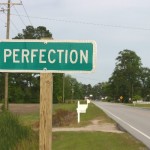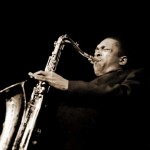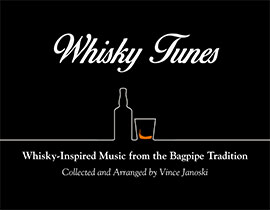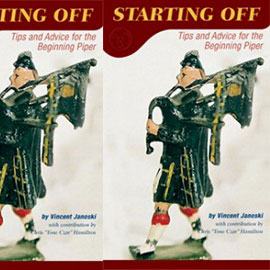Bagpiping and the Search for Meaning
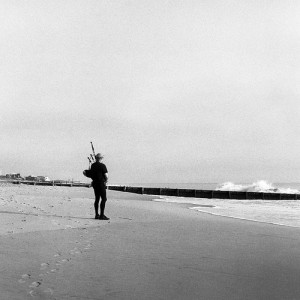 The poet John Keats once described the ideal state of the psyche as negative capability—the ability “of being in uncertainties, Mysteries, doubts without any irritable reaching after fact and reason.†Which brings to mind another quote by Gilbert Chesterton: “If a thing is worth doing it is worth doing badly.” Chesterton was a staunch advocate of the amateur over the professional. He spoke much about activities and vocations that people must take on themselves in their own way rather than leaving them to specialists. And that typically means screwing them up sometimes. The quotes by Keats and Chesterton capture the avocation of Highland bagpiping completely.
The poet John Keats once described the ideal state of the psyche as negative capability—the ability “of being in uncertainties, Mysteries, doubts without any irritable reaching after fact and reason.†Which brings to mind another quote by Gilbert Chesterton: “If a thing is worth doing it is worth doing badly.” Chesterton was a staunch advocate of the amateur over the professional. He spoke much about activities and vocations that people must take on themselves in their own way rather than leaving them to specialists. And that typically means screwing them up sometimes. The quotes by Keats and Chesterton capture the avocation of Highland bagpiping completely.
If there ever was a thing that is often done badly, it is bagpipes. As such, it is clear that it is worth doing! But the crux of Chesterton’s quotation really means that one must be willing to stink at something if it is meaningful, before one can excel. To do that though, we must nurture our “negative capability” or, our ability to live with uncertainty and doubt. And any creative pursuit (music especially) will bring a lot of doubt.
And that is a hard thing to reconcile. We live in an opinion culture, where we are supposed to be sure about everything, and, we are all deathly afraid of being wrong. But there is no absolute truth when we’re talking about bagpipes or music for that matter. So it is no surprise that we bagpipers have cultivated a fear of uncertainty and run from the very doubt and mystery that should drive us forward.
Kathryn Shulz tackles this very thing in her book Being Wrong: Adventures in the Margin of Error. The book blends cognitive science with the work of great past thinkers to paint a compelling picture of our cultural aversion to “wrongness.” Shulz argues that it is that very wrongness that is the fuel for everything we do from art to scientific discovery and, far from being something that should be avoided, is something that should be embraced as a transformative force for personal growth.
“However disorienting, difficult, or humbling our mistakes might be, it is ultimately wrongness, not rightness, that can teach us who we are.†—Kathryn Shulz
It is almost a cardinal social sin to not have an opinion about something these days. Bagpiping is not exempt. Lots of people have opinions about all kinds of bagpipe matters, players, and bands. Lots of people also pretend to know things they don’t know. But to engage in a creative pursuit like bagpipe playing is to enter a whole world that is a complete mystery—whether you believe it to be or not—where there are always things that you don’t know. Perhaps it is this doubt that pushes our desire for meaning to be carved up by others and served to us ready made? There is certainly less doubt that way. But we should embrace the limits to our knowledge and be free to explore the things we don’t know without feeling embarrassed for not knowing them. It is essential to our own self-discovery as we search for meaning.
-
Michael McGee
 Pipehacker
Pipehacker

